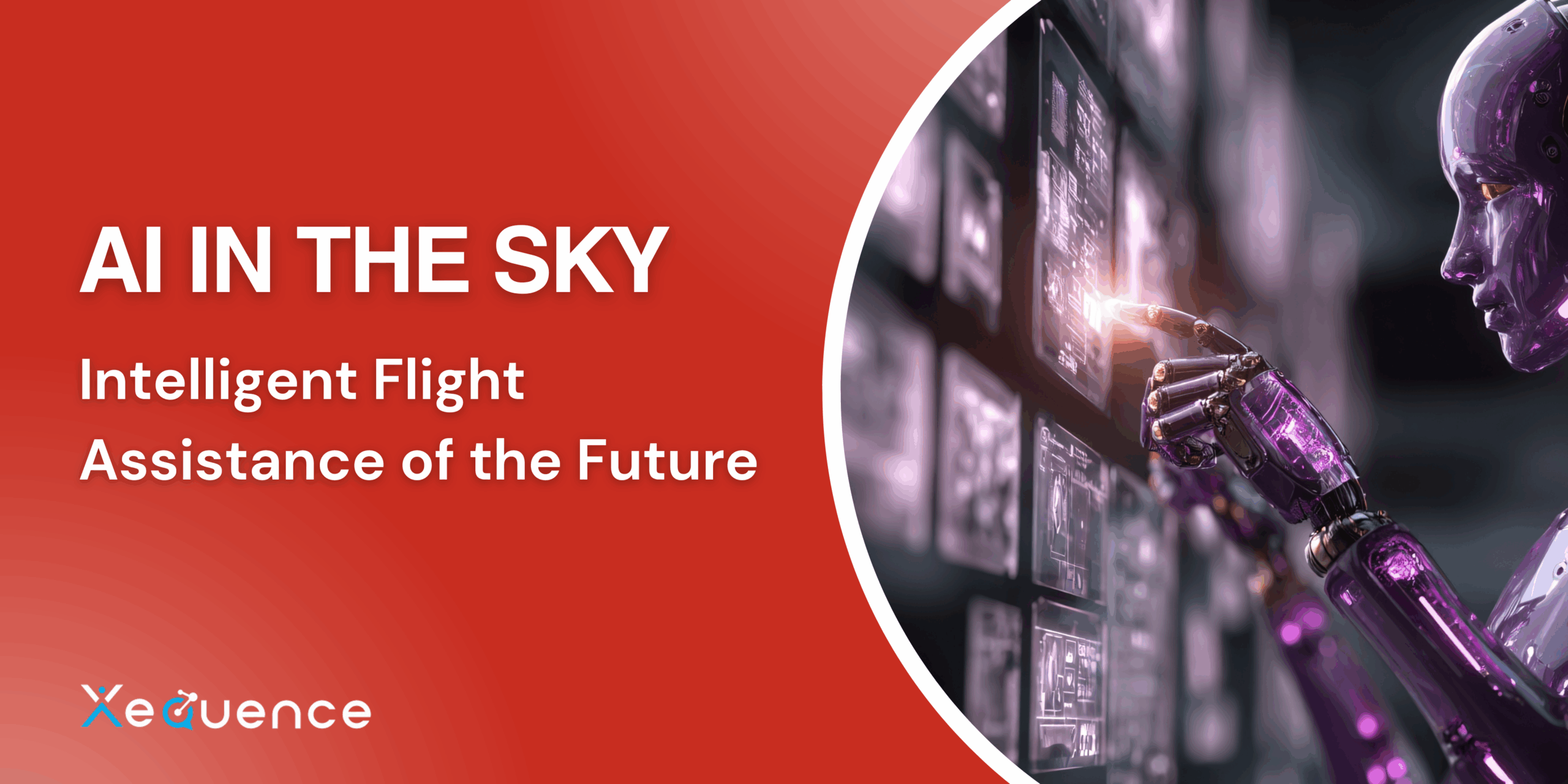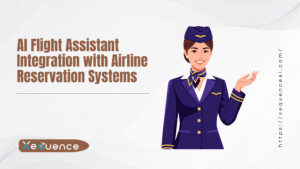- Home
- Artificial Intelligence
- AI in the Sky: Intelligent Flight Assistance of the Future
AI in the Sky: Intelligent Flight Assistance of the Future
- November 24, 2025
- Rajib Kar
- Artificial Intelligence, Guest Experience, Hotel Management

How Intelligent Flight Assistance Is Transforming Aviation
The aviation world is on the verge of a technological revolution, where intelligent algorithms take the same weight as engines and wings. AI will soon be the future of contemporary aviation—automating processes, improving safety, and introducing an intelligent flight system. With airlines minimizing operations and focusing on efficiency and safety, AI in aviation is officially among the most promising destinations, and every ride will be smarter, safer, and more environmentally friendly.
AI in Aviation: Definition and Significance
AI in aviation AI stands to refer to the incorporation of artificial intelligence and machine learning in the operations of airlines and aircraft. This involves the analysis of a huge volume of flight data, fuel efficiency, anticipating mechanical problems, as well as the cockpit and user experience. With the rate of flight and passenger volume growing all over the world, it is now necessary to use AI-powered solutions to handle complexity and minimize risks and operational excellence.
Intelligent Flight Systems: Making the Road Safer and More Productive
Intelligent flight systems make use of aircraft sensor data, air traffic data, and weather to offer real-time decision support. Such systems can minimize fuel consumption and punctuality of flight routes, and they can also consider dynamic weather conditions. As an example case, AI-based flight path planning by Alaska Airlines saves up to 30 minutes of flight time and saves money on fuel consumption, which directly benefits both the airline and the environment. Such a rate of automation guarantees that there are fewer delays, better airspace control, and enhanced safety results for all.
AI Flight Assistance Technology: The present applications and the future possibilities
The entire technology of AI flight assistance drives the forecasting of maintenance to robotized crew scheduling. Expenses such as Delta and Air France-KLM airlines have fitted their aircraft with AI-based surveillance devices, which have led to a decrease in unforeseen failures and a major fall in operational wastages. The new AI applications have also included speech-based inspection systems in privacy where pilots and mechanics can document real-time notes at the touch of their mouths, without verbal or vocal training, speeding up maintenance and compliance inspections.
Human and AI Collaboration in Aviation
The collaboration between humans and AI in aviation is central to the achievement of efficient and safe skies. Pilots are now assisted by intelligent systems that automate regular inspections, identify anomalies and propose the best way of responding during messy scenarios. The partnership liberates crew members to think critically and make decisions in the event. Nevertheless, the addition of additional AI to the cockpit and control tower introduces additional issues: human trust of the free hand to automation, stable human-to-machine communication, and effective emergency override systems. It is the balance that the future of aviation has to be searching, where AI will support but cannot substitute human knowledge.
Creating a Transformation in Aviation Safety through Predictive Analytics
Aviation safety predictive analytics is transforming the way airlines address the issues of risk. Machine learning algorithms process past maintenance history, sensors, and external variables associated with the weather to make predictions of possible failure, before it takes place. Carriers all over the world have reduced unplanned maintenance and flight delays, by an IATA survey; predictive maintenance fueled by AI might save a data more than 3 billion a year, across the industry. This offensive approach ensures greater security in the fleet, an increase in safety and more passenger confidence whenever they take the aircraft.
Artificial Intelligence in Risk Prevention in Aviation: New Trends
Risk prevention connected to AI uses in the aviation industry extends beyond the concept of predictive maintenance. Planes have now been equipped with real time monitoring systems that monitor systems and operational environments to raise irregularities like overheating of systems or electrical faults-before such irregularities become life-threatening. Smart security measures, facial recognition at borders gates, as well as automated checking of biometric IDs, also become feasible through AI, which remarkably improves the level of safety and passenger throughput. With the increasing cyber risk, the concept of using AI to enforce cybersecurity is becoming a common practice in the industry.
Artificial Intelligence Cockpit Technology: Advances and Applications
AI-driven cockpit technology is transforming the manner in which pilots control aircrafts. The cockpit’s current shape incorporates an artificial intelligence interface unified to provide systems navigation, aeroplane health, weather, and air traffic information on easy-to-use screens. Voice activation, situational awareness, and real-time anomaly detection enhance voice recognition on the systems and lessen the cognitive burden on the pilots. With the development of AI cockpit technology, the potential of remotely piloted or even completely autonomous passenger planes is becoming closer- even though regulatory, technical, and ethical issues are yet to be resolved.
Conclusion: The Horizon of AI in Aviation
Step intelligent flight systems and predictive analytics of aviation safety trains and limiting next-generation cockpit technology to AI-enabled risk prevention AI in aviation makes flight what we recognize it as today. This intermingling of human and AI cooperation in the aviation market presents the ultimate goal of the aviation industry to be safer, greener, and more efficient, with technology just enabling the professionals to do the job. With airlines, manufacturers, and regulators still adopting solutions based on AI, the intelligent flight assistance era will see every journey smart, smooth, and connected as it has never been.
Recent Posts
5 Myths About AI in Hospitality Operations | Facts Every Hotelier Should Know
Newsletter
Get regular updates on data science, artificial intelligence, machine
You may also like

Al Flight Assistant Integration with Airline Reservation Systems

The Future of Hospitality Operations: AI Trends to Watch

AI Flight Assistants for Real-Time Flight Updates, Alerts




